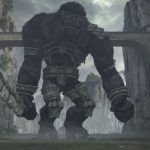 History
History  History
History  History
History 10 “Modern” Problems with Surprising Historical Analogs
 Health
Health 10 Everyday Activities That Secretly Alter Consciousness
 History
History Top 10 Historical Disasters Caused by Someone Calling in Sick
 Animals
Animals 10 New Shark Secrets That Recently Dropped
 Movies and TV
Movies and TV 10 Forgotten Realities of Early Live Television Broadcasts
 Technology
Technology 10 Stopgap Technologies That Became Industry Standards
 Weird Stuff
Weird Stuff 10 Wild Facts About Taxidermy That You Probably Didn’t Know
 Travel
Travel 10 Beautiful Travel Destinations (That Will Kill You)
 Miscellaneous
Miscellaneous 10 Modern Marriage Rituals Born from Corporate Branding
 History
History 10 Extreme Laws That Tried to Engineer Society
 History
History 10 “Modern” Problems with Surprising Historical Analogs
 Health
Health 10 Everyday Activities That Secretly Alter Consciousness
Who's Behind Listverse?

Jamie Frater
Head Editor
Jamie founded Listverse due to an insatiable desire to share fascinating, obscure, and bizarre facts. He has been a guest speaker on numerous national radio and television stations and is a five time published author.
More About Us History
History Top 10 Historical Disasters Caused by Someone Calling in Sick
 Animals
Animals 10 New Shark Secrets That Recently Dropped
 Movies and TV
Movies and TV 10 Forgotten Realities of Early Live Television Broadcasts
 Technology
Technology 10 Stopgap Technologies That Became Industry Standards
 Weird Stuff
Weird Stuff 10 Wild Facts About Taxidermy That You Probably Didn’t Know
 Travel
Travel 10 Beautiful Travel Destinations (That Will Kill You)
 Miscellaneous
Miscellaneous 10 Modern Marriage Rituals Born from Corporate Branding
10 Game Villains Who Became Henchmen
Villains can be a memorable part of any video game. Their ominous plans dominate the plot, and they can be highly entertaining in their evil tirades. To maintain that sense of fun, developers often bring their baddies back for multiple sequels. However, it’s hard to sell any sense of escalation when the same villain loses time and time again. That’s why demotions are in order.
Sometimes, gaming villains return to serve stronger antagonists. In essence, they reduce themselves to mere henchmen. This obviously diminishes their menace, but it may also make the new villains more imposing. Plus, the old baddies’ lower positions can lead to new levels of comedy as the game pokes fun at how pathetic they are. They’re willing to sacrifice their own dignity to get back at those pesky do-gooders.
Related: 10 Major Villains Whose Grand Plans Don’t Make Any Sense
10 Neo Cortex
This mad scientist uses innocent animals to create all sorts of horrific hybrids and mutated monstrosities. His most unexpected success is the eponymous Crash Bandicoot. The manic marsupial rescues his girlfriend and thwarts Cortex’s evil experiments. He soon makes a habit of foiling the scientist’s sinister schemes, making the villain ever more desperate.
That’s why Cortex consents to second fiddle in later entries like Crash Bandicoot: Warped and Crash Bandicoot 4: It’s About Time. The top dogs in these games are the mystical Uka Uka and the time-bending N. Tropy, respectively. It’s supposedly an equal partnership, but these guys only use Cortex for his resources. At least now he has someone to complain to when things go wrong.[1]
9 Gnasty Gnorc
This oversized ogre isn’t especially bright, yet he inexplicably has powerful magic and an army of monsters at his disposal. In Spyro the Dragon, Gnasty Gnorc uses these gifts to trap all the dragon elders in crystal. They insult him on live TV, after all. Unfortunately, he misses the miniature Spyro, who frees the elders and sends Gnasty packing. It appears the realms have seen the last of the petty pest.
Unfortunately, the Gnorc returns in the fifth entry, Spyro: A Hero’s Tail. The irony is that he now serves a dragon. He’s a minor minion of Red, a former elder who wants to use Dark Gems to wreak havoc on the realms. You wonder why Gnasty settles for this thankless job. Then again, he’s too stupid to remember that Spyro beat him. Ignorance is bliss.[2]
8 Ansem & Xemnas
It’s like looking in a mirror. Ansem and Xemnas are the Big Bads of Kingdom Hearts and Kingdom Hearts II, respectively. They each command an army of creatures born from the darkness in people’s hearts. These demonic legions ravage various Disney worlds in search of the elusive Kingdom Hearts, which holds the power to remake reality. Sora and the other warriors of light stop both baddies, but the war is far from over.
Through complex circumstances that are too elaborate to squeeze in here, it turns out that Ansem and Xemnas stem from Master Xehanort. This Machiavellian menace wants to recreate an ancient battle to destroy all of existence and gain the primordial power of light. This result enables him to remake the universe in his own design. Through time-bending antics, he recruits his other selves to fight this war. They all fall in line without issue, apparently believing in his master plan as an extension of their own. At least there’s no danger of infighting.[3]
7 Rodrigo Borgia
The Assassin’s Creed series often uses real historical figures for its characters, so it tracks that someone with Rodrigo Borgia’s unscrupulous reputation serves as a central antagonist. In Assassin’s Creed II, he leads the nefarious Templars during the Italian Renaissance. Together, they scour the country in search of the mythical Apple of Eden, slaughtering anyone in the way of their brand of order. The irony is that Rodrigo’s influence lessens as he attains higher positions.
Borgia soon becomes the pope. He then gives up on hunting lost artifacts and works to consolidate the Templar influence across Italy. It’s his son, Cesare, who focuses on expanding. The younger Borgia takes charge in Assassin’s Creed: Brotherhood, leading his father’s forces in several bloody battles. Rodrigo doesn’t have the will to fight back, so all he can do is sanction these offensives. It’s not long before Cesare cuts out the middleman and murders his father. So much for family.[4]
6 The Illusive Man
This guy doesn’t even know he’s a henchman until it’s too late. The Illusive Man debuts in Mass Effect 2 as the leader of Cerberus. This paramilitary group is dissatisfied with humanity’s low status in a galaxy full of aliens. When human colonies start falling victim to the insectoid Collectors, Cerberus recruits galactic hero Shepard to help. They successfully defeat the creatures, but the Illusive Man wants to salvage their terrible tech to give humanity an edge over other species. That desire ultimately proves his undoing.
In Mass Effect 3, the Illusive Man allies Cerberus with the Reapers—the ancient machines who engineered the Collectors. He thinks he’s using them for his own gain and will eventually control them. Unbeknownst to him, though, they subtly indoctrinate their new ally into one of their slaves. He’s just one of their mechanized minions by the end. Such is the price of his hubris.[5]
5 Shao Kahn
The Mortal Kombat franchise has several scary fighters, but few are as physically imposing as Shao Kahn. As the ruler of Outworld, this draconian god commands legions of lethal creatures ready to tear the hero’s limb from limb. His conquests make him the overarching antagonist of Mortal Kombat II and a few other entries. Even gods aren’t infallible, though.
Mortal Kombat 11 introduces Kronika, a Titan and ruler of time. She sees an imbalance of good and evil throughout Earthrealm, so she resolves to erase the timeline and start from scratch. The heroes obviously try to stop this maniacal plan. As such, she fills her ranks with Shao Kahn and other past villains. The fiery fiend doesn’t like taking orders, but he sees little alternative. Time is the great equalizer.[6]
4 Dr. Nefarious
Of all the baddies to bother Ratchet and Clank, none are more prolific than Dr. Nefarious. The evil inventor falls into the machinery of his ominous base, inadvertently becoming a robot in the process. As an act of galactic revenge, he resolves to turn all organic life forms into his mechanical servants. That insane agenda informs his schemes in Ratchet & Clank: Up Your Arsenal. The titular duo stops him, but he later returns with a grander plan in A Crack in Time. This title sees him use a transdimensional clock to rewrite history so the heroes never win. It’s hard to top that goal.
Perhaps that’s why Nefarious only goes downhill from here. The 2016 Ratchet & Clank reboot reimagines the mastermind as a lackey. Namely, he works for Chairman Drek—helping the businessman’s harebrained schemes and designing his weapons. Granted, this ends in betrayal from Nefarious, but he still spends most of the game as a second banana. It gets worse in Rift Apart.
Traveling to an alternate dimension, Nefarious grovels before his more competent counterpart and secures a place at his side. The sad part is that this job basically amounts to following orders and nodding in agreement. In other words, it’s exactly how he treats his butler.[7]
3 Vergil
The only opponent who can give the demon-slaying Dante a run for his money is his brother, Vergil. They’re both the sons of the heroic demon knight Sparda, after all. While Dante follows his father’s footsteps and fights demonic uprisings, Vergil goes the opposite route. Devil May Cry 3: Dante’s Awakening—a prequel to the first game—sees Vergil raise a hellish tower and unleash a horde of monsters on an unsuspecting city. He wants to open a portal to the demon world, but Dante stops him. After his defeat, he elects to stay in the monstrous realm. That shortsighted act leads to his sad fate in the original Devil May Cry.
Vergil soon challenges Mundus, the Demon King defeated by his father. The attempt doesn’t go well, as the demonic despot soon makes Vergil his mindless servant. When Dante comes to thwart Mundus’s plan to invade the human world, he must once again battle his brother. This time, though, Vergil is a faceless knight named Nelo Angelo. The resulting clash thankfully frees him from Mundus’s control yet leaves him severely weakened. That’s why he gets for biting off more than he can chew.[8]
2 Bane
This muscle-bound mercenary is one of Batman’s most imposing foes. Arkham Origins shows you why that is. In this prequel, Bane storms into Gotham to hunt down the Dark Knight. Though technically hired by the Joker, the masked man quickly takes control of the operation, unwilling to be bossed around by anyone. He even deduces Batman’s identity. However, repeated losses drive Bane to pump more and more experimental steroids into his system. He eventually becomes a mindless monster, which makes him easy to manipulate.
By the time Arkham Asylum rolls around, Bane is little more than a tool. A reckless doctor uses him as a test subject for her brand of super-steroid, and the Joker exploits the project for his own gain. The Clown Prince of Crime then sends Bane after Batman like an attack dog. No longer does the mercenary have any agency of his own. Instead, he’s just a tool for more conniving crooks.[9]
1 HADES
Humanity’s survival and extinction depend on machines. In Horizon: Zero Dawn, a hopeless battle against rogue robots prompts a team of desperate scientists to prepare for the worst. To give the human race a fighting chance, they create GAIA, an AI network designed to terraform the planet and make it hospitable in the far future. It then releases a batch of human clones to repopulate. Unfortunately, a branch of the network named HADES goes rogue and enacts an extinction protocol. Awakening the dormant machines from yesteryear, it tries to wipe humanity from the face of the Earth before being stopped by the heroic Aloy. HADES isn’t acting on its own, though.
Horizon: Forbidden West has the AI taken captive by the enigmatic Sylens. Over the course of the story, you learn that the extinction signal came from space. Namely, it originated from a colony of humans who fled the planet when the machines took over. These self-important survivors encoded their collective minds into another AI known as Nemesis. It turned on its creators and forced them to flee, sending the extinction signal to Earth to prevent its targets from finding refuge. In short, HADES abandons one AI master in favor of another.[10]








